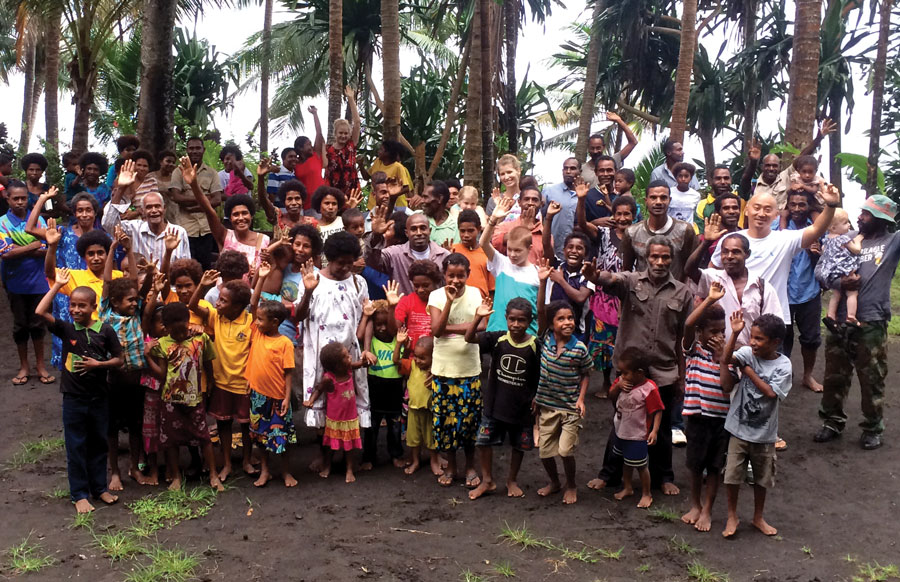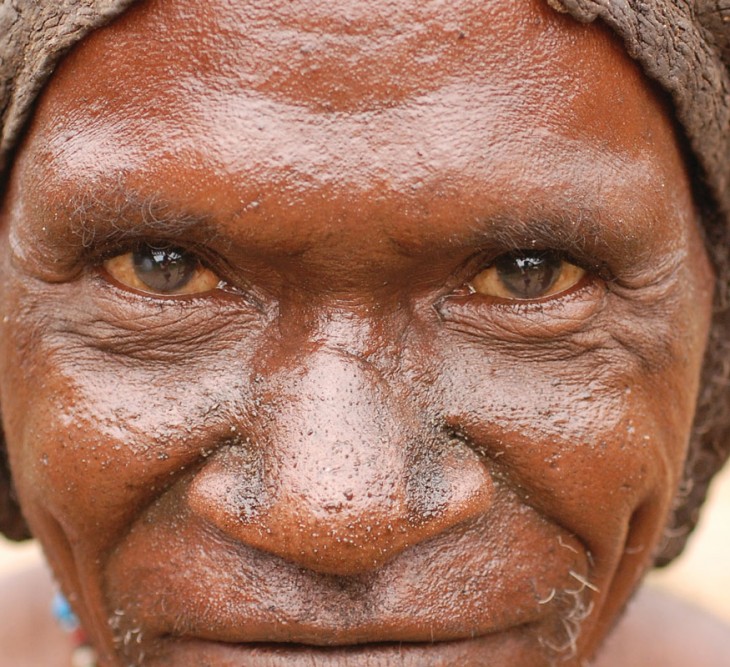Portrait of a Missions-Minded Church
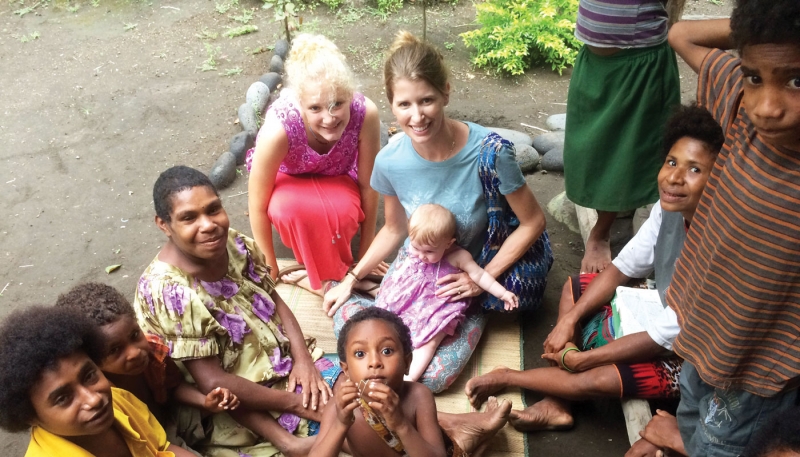
It Starts with the Church
Mark’s visit to the island was “a blackbelt of a visit.” Most people wouldn’t want to travel the 80 miles of open ocean from the mainland to the island where Brandon and Rachel and their team minister. But Mark made the journey on behalf of his church to provide accountability and encouragement for their missionaries.
My colleagues do a good job each issue, writing about missionaries like Brandon and Rachel who are reaching unreached people. And the stories have impact because we see God’s hand at work.
But each story doesn’t actually start with a missionary. Nor does it end with a new believer. That’s only the middle part.
The story starts with the church. A local church sending a missionary to the field through Ethnos360. Then other local churches and individuals jump on board, supporting that missionary to see those unreached people become reached.
And the story ends with the church, a new body of believers established among that people group, which in turn begins a new chapter of the story.
Starting with this issue and throughout 2019, we’re widening the focus of our writing to include that first part of the story about churches sending and supporting missionaries. We’ll feature churches that view their missionaries’ ministries as a part of the church’s obedience to the Great Commission, that take responsibility for their missionaries, and that strengthen them and their ministry.
Maybe your congregation is already very focused on missions. Perhaps you’re starting to explore what missions should look like for you as a local body of believers. Wherever you are on the missions continuum, we hope that these portraits of missions-minded churches encourage you, maybe even challenge you, but definitely move you forward on the path.
A Missions-Minded Church in California
Christ told the disciples that they would be “witnesses to Me in Jerusalem, and in all Judea and Samaria, and to the end of the earth” (Acts 1:8).
Shadow Mountain Community Church, under the leadership of Dr. David Jeremiah and Dr. Gary Coombs, reflects that pattern. In their own “Jerusalem” of El Cajon, California, they reach out to those around them, including cross-culturally into local Arabic, Hispanic and Iranian communities. Further outward, they minister on both sides of the nearby Mexican border. And through their missionaries, they reach to the ends of the earth.
God has grown Shadow Mountain to the point of sending and supporting missionaries through 43 mission boards in 34 countries. Though they are a large church, Shadow Mountain engages personally with their missionaries.

Church leaders and members alike provide their missionaries with care, support and direction. They are a good example of a church taking responsibility for their missionaries to ensure that the missionaries’ ministries flourish. Mark Dalton, Shadow Mountain’s missions director, phrases it this way: “I always stress that it is our desire to strengthen the hand of the missionary.”
And because of this approach, in 2017 Ethnos360 invited Mark to join its leadership team to provide broader perspective and outside accountability.
Caring While They’re Home
The Shadow Mountain community cares for their missionaries in a variety of ways when they are home from the field.
Missionary of the Week
The church seeks to bring awareness of their missionaries to the entire church body. One way they do this is by featuring a “missionary of the week.”
Walking into the church, congregants view the missionary of the week’s photo and details of their ministry on the information screens scattered throughout the church. The weekly bulletin reflects those details too.
If the missionaries are on home assignment, they are invited up onto the platform during each of the three services, where Pastor Jeremiah introduces them and another pastor prays for them. In doing so, the pastoral leadership points the people of Shadow Mountain to God's heart for the world. And this public recognition and prayer serve to remind the church that their missionaries are home.
One-on-One Relationships
Similarly, 35 years ago Joyce Tepfer started Missionary Encouragement Team Support (METS). Their aim, as found in their flyer, is “connecting Shadow Mountain women to missionary women around the world for prayer, communication and care.”
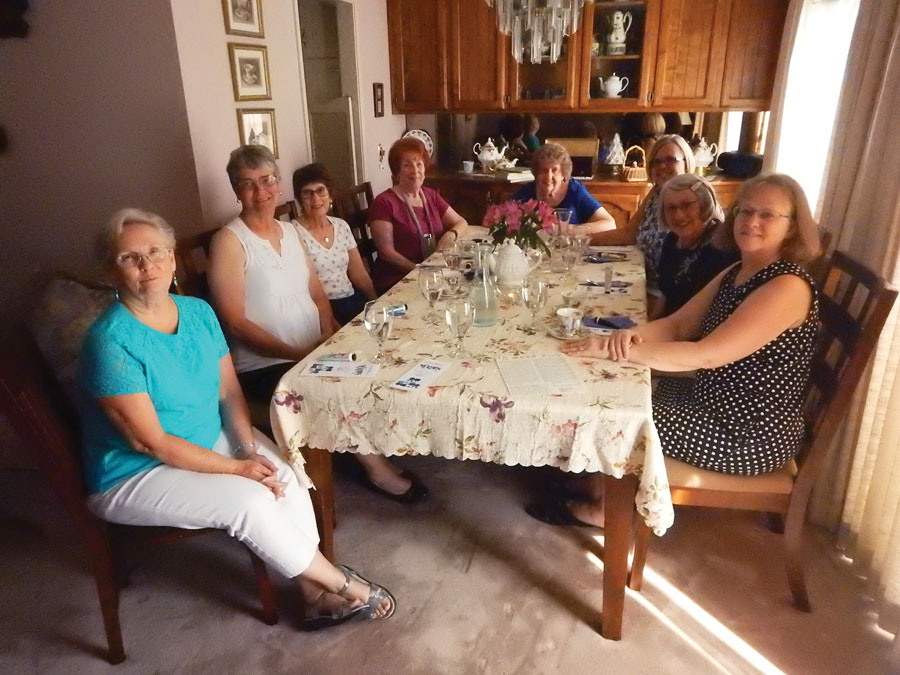
The ladies of METS meet quarterly to “interact, be informed and pray with our missionaries.” And once a year they host a ladies’ tea. Last year 165 women attended, including about 60 missionaries. This two-hour tea is a fast-paced opportunity to glimpse the lives of the missionary women on home assignment.
It wouldn’t be realistic to expect to completely catch up with any of the missionaries during the tea, but that’s not the point. Joyce explains that “the goal is not so much for people to get really well acquainted with Mrs. Smith, but just to have to go see Mrs. Smith and take her to coffee.” That’s “the number one thing of METS: exposure for one-on-ones.”
Missionaries in for Meals
Likewise, Joe and Margaret Miller, who serve on the missions committee, encourage others to build relationships and they do it by example. During my visit, Joe and Margaret gladly absorbed me into their previously scheduled lunch visit with a missionary family. As the five of us chatted around the table while the missionaries’ children played, it was clear that the Millers were already well acquainted with the family and their ministry.
The Millers regularly invite missionaries in for meals. How regularly? Margaret remarked that, because of people’s health restrictions, they’ve started serving taco salad, putting out the ingredients so that each person can take what they want. Joe offhandedly added, “Yeah, for the last five missionaries, we had taco salad.” The last five.
Margaret summarized, “But the main thing is we’re here for the heart of the missionaries. That's the reason to have them in the home.”
As the visiting missionary family prepared to leave, the husband turned to Joe and said, “Thanks again for the use of your van.”
Caring While They’re away
Keeping in touch with missionaries overseas looks a lot like keeping in touch with dear friends who have moved to another town. You visit when you can, but you also write, call and create other opportunities to connect.
Overseas Visits
The people of Shadow Mountain make a concerted effort to connect with their missionaries by visiting them when they are overseas.
Jim and Judy Burdett, missionaries sent out by Shadow Mountain, minister to the Dom people of Papua New Guinea. Over the years, Dr. Gary Coombs, Shadow Mountain’s missions pastor, has visited the Burdetts twice, and Mark Dalton has visited three times, most recently at the dedication of the Dom New Testament in 2017.
“They’re really faithful servants who have hung in there,” Mark says. Because Shadow Mountain has walked with Jim and Judy in that work for over 30 years, “it was just a no-brainer” that the church “needed to have somebody there to encourage them” for that celebration.
Brandon and Rachel Buser, another missionary family, are sent out by Clairemont Emmanuel Baptist Church in San Diego to the Biem people group in Papua New Guinea. They always look forward to home assignments. It’s a time “to fellowship with our churches” because “it's not just that they're familiar with us, but they're actually invested in what we're doing out there.”
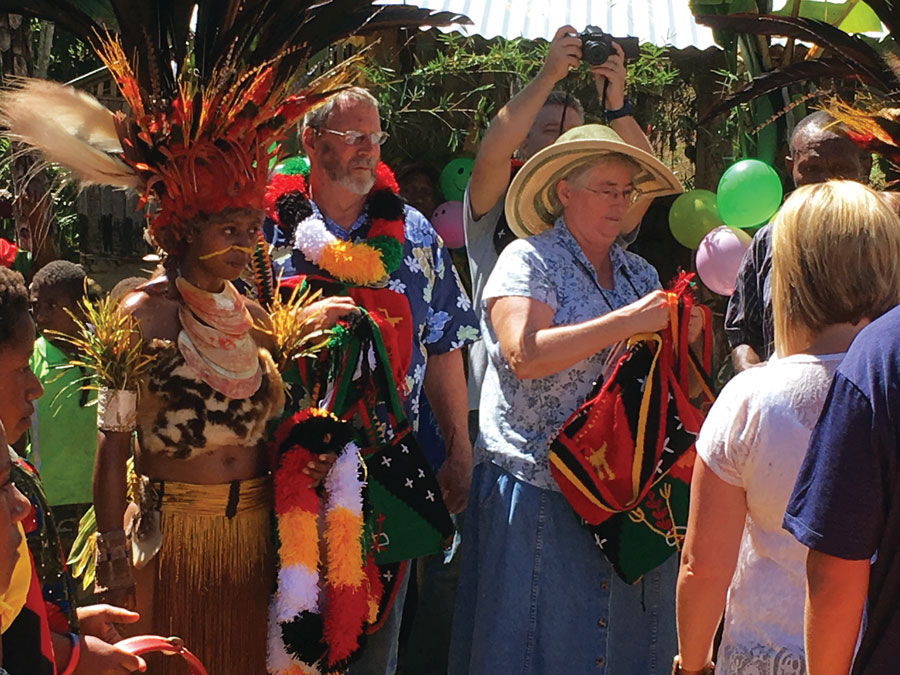
Though not the Busers’ sending church, Shadow Mountain supports them in their ministry. Brandon expressed that Shadow Mountain’s goal of planting churches “dovetails perfectly with our sending church.” Shadow Mountain takes their role of supporting the Busers seriously and has been “super hands-on with us … super engaged with us,” Brandon said.
Part of being engaged with the Busers meant that Shadow Mountain helped replace the team’s boat with a larger, safer one.
Mark Dalton rode in that new boat to see firsthand how the Busers’ ministry was going and to encourage them.
Brandon explains that Mark’s visit wasn’t just any trip. Even with the new boat, it’s no small matter to travel 80 miles across open ocean. “Mark's been out there, and that's a blackbelt of a visit. There's not a lot of folks that come out to our island. It's not a fun trip to make, but he was able to. … It meant a lot to us.”
Other Ways to Connect
While overseas visits only happen every so often, staying in touch in other ways happens frequently.
That’s what I saw during my week at Shadow Mountain. Dr. Coombs and Mark Dalton were continuously connecting with missionaries by email or phone and even through videoconferencing.
And at each missions committee meeting, there are birthday and anniversary cards available to sign for the missionaries. There are birthday cards for the missionaries’ children. Mark mentioned that they include stickers with the cards for the younger kids. “That's about all we can do in a card. But we want them to know that we're praying for them.”
Pray for the Missionaries
Praying for their missionaries is a sacred responsibility for the people of Shadow Mountain. From the pastor praying for them from the front of the church to organic prayer meetings throughout the week, the church surrounds their missionaries with prayer.
And they do it from an informed perspective. That is made possible by behind-the-scenes volunteers like Kathie Langston. Every month she distills missionaries’ prayer letters and emails into a single booklet that is made available throughout the church. And then there’s Rose Van Houten who forwards incoming prayer emails to the people of Shadow Mountain who have signed up to receive them daily.
Day of Prayer
In addition to usual times of prayer for and with the missionaries, Shadow Mountain’s missions committee sets aside one entire day a year to pray for their missionaries.
All of Shadow Mountain’s missionaries complete an annual report that helps the committee gain a well-rounded picture of the missionaries’ goals, successes and disappointments over the last year. The reports give insight into family relationships, spiritual and emotional health and team dynamics. Questions even include subjects like when they were last able to take a vacation and if they have internet accountability. Rounding out the form are open-ended questions about their finances and how Shadow Mountain can encourage them.
Brandon Buser supposes that filling out such a form would be daunting “if we didn't fully know that those guys are perusing every single line of that thing … they want to know what's going on with the work, how they can be a blessing to us.”
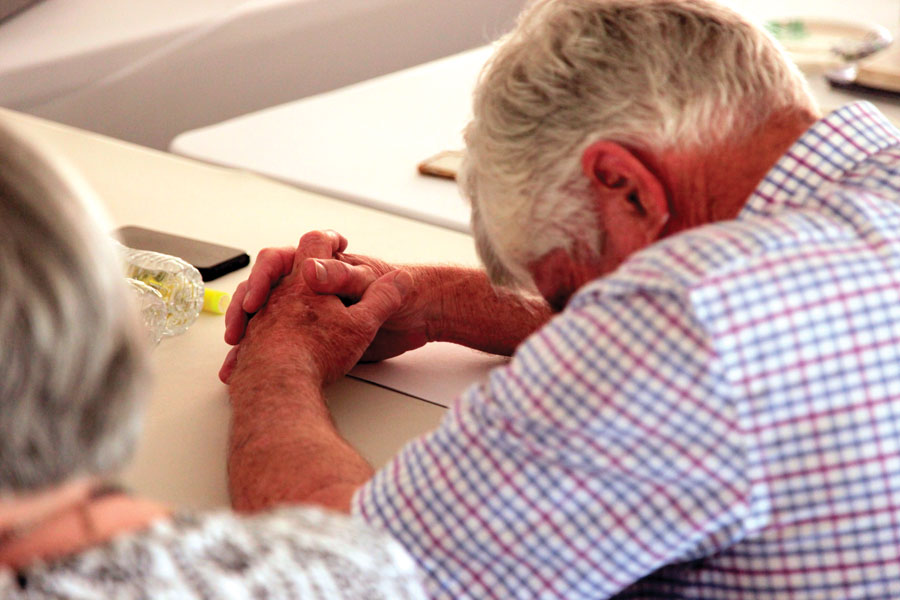
Brandon’s right. They do read every line. I saw them do it.
Each of the 16 attendees, pen and highlighter in hand, read and marked up one or two annual reports for the first 20 minutes.
Forty minutes of prayer followed, a five minute break, and then another forty minutes, simply to pray around the table once.
As the day progressed, the stack of annual reports dwindled. Lunch served as a short rest from the work of prayer.
Next to the annual reports sat a computer, an iPad and a stack of notecards. Mark exhorted the intercessors to write a short email or handwritten note to the missionaries, letting them know that they were prayed for, even mentioning something specific that they had prayed about.
By 3:30, they had come to the end of the stack. The reports were gathered up, a few minutes of cleanup followed and everyone left. It was a hardcore day of prayer without distractions.
“These guys are invested” is how Brandon described it.
Prayer Throughout the Church
“A huge part of our support over there is having people praying for us,” Rachel Buser said of the annual day of prayer. Brandon and Rachel recognize the immensity of the “spiritual battle” and the importance of prayer.
Rachel is thankful, knowing that, in addition to the mission committee's annual day of prayer, people from the church frequently pray for her. She is encouraged because Joyce Tepfer from the ladies’ METS groups has prayed with her and because someone from that group is designated to email her and pray for her.
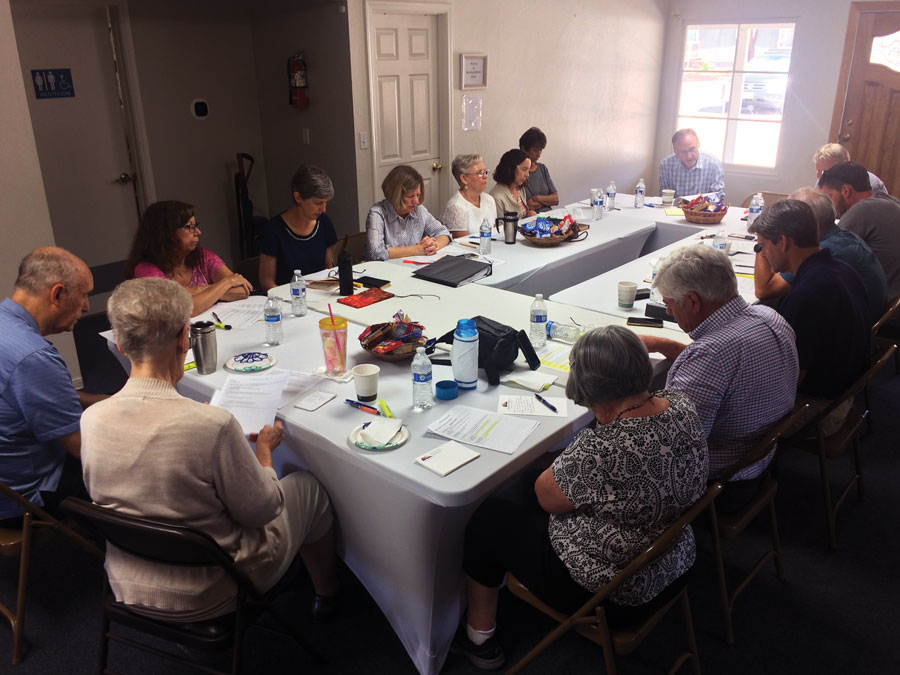
Finances
In addition to providing care and encouragement, Shadow Mountain prioritizes providing financially for their missionaries. Reflecting their obedience to the command of the Great Commission, 20 percent of Shadow Mountain’s budget goes to missions. “As the church grows, the mission budget grows,” Pastor Jeremiah likes to remind the people.
Monthly Support
A significant portion of that 20 percent goes directly to regular monthly support, the way which most missionaries meet their personal and ministry expenses. But Shadow Mountain also enjoys meeting the financial needs of its missionaries in some unique ways.
Missionary Apartments
For example, Shadow Mountain owns seven apartment units for their missionaries to live in while on home assignment. Not only does this give them a place to stay while home, but it enables them to get involved and build relationships with the church body.
Mike and Holly Hanson’s adult Bible fellowship class “adopted” one of the apartments’ patios — landscaping and decorating it because they wanted to bless the missionaries.
And when Holly’s missionary friend came to live in an apartment, Holly and her class stocked their refrigerator. Paging through her mental notes, she recalled any items her friend mentioned on Facebook that she had missed while overseas, and Holly was sure to include them too.
Creative Support
Shadow Mountain also strengthens the hands of their missionaries in some creative ways.
Offering classroom or online theological education through their own accredited Southern California Seminary, Shadow Mountain better equips their missionaries to handle the Word. Some of their missionaries have even earned advanced degrees.
They look out for their missionaries’ children, too, by making available a quality education through the church’s elementary and high school.
One final innovative way they strengthen their missionaries is through sending them quality books which the missions committee members have read and found to be helpful.
Mark Dalton says, “It's so much fun because Shadow Mountain is a generous church, and there are so many different ways in which we are able to bless our missionaries. And the Lord keeps bringing new ideas.”
Providing Direction for Missionaries
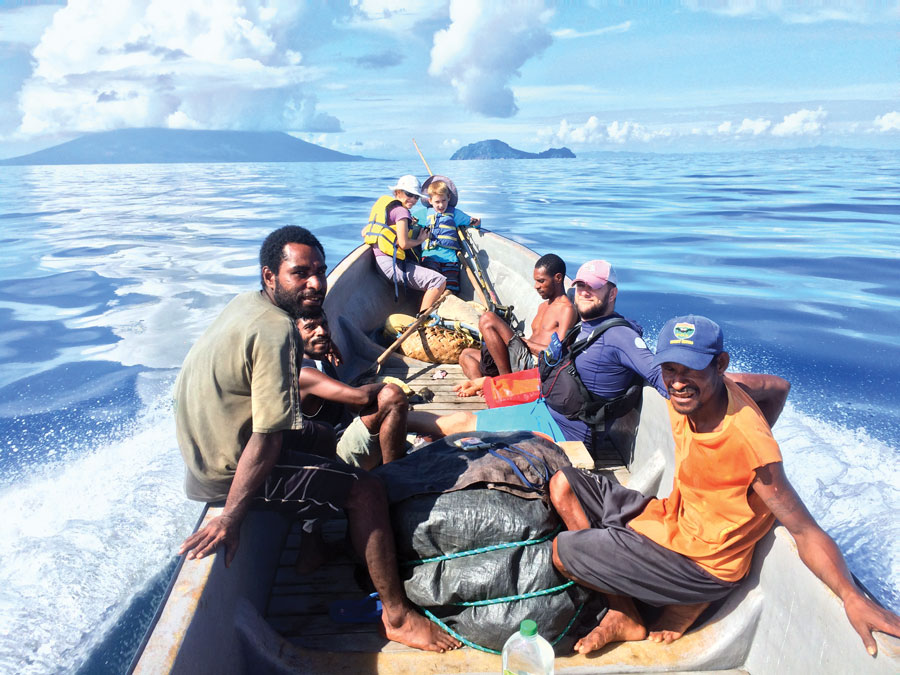
Part of the loving care that Shadow Mountain gives their missionaries comes by providing direction, both through the church and with the assistance of mission organizations.
Spiritual Qualifications
“We’re not going to just send you a check,” said Mark.
That’s excellent because the church doesn’t merely want to fund missionaries: they want to know them well and confirm that they are qualified for service. In fact, Shadow Mountain holds its missionaries to the same qualifications found in 1 Timothy and Titus that they hold their own pastors to.
The church wants to establish that potential missionaries are neither “running nor rusting” as Mark says — running away from problems or rusting from lack of service. Shadow Mountain desires to send people who are already faithfully following Christ and serving Him.
What if a missionary isn’t from Shadow Mountain? “Join everything” at the church and spend a few months there building relationships, Mark advises. “People do love missionaries here at this church,” and it’s in the context of these relationships that care and prayer take place.
Doctrinal Fidelity
Doctrinal fidelity is a requirement for any missionary Shadow Mountain sends or supports.
“We check them out to make sure they're biblically in line with where we stand,” Dr. Coombs explained. “Each missionary who is going to be a career missionary has to write his own doctrinal statement and has to meet with the mission committee and some of the people from our seminary, people that are knowledgeable in Scripture, and we make sure that they're very sound.”

When considering supporting a missionary sent out by another church, Shadow Mountain dialogues with the sending church, ensuring that the sending church is on the same page as they are theologically.
A Church Planting Strategy
Besides being on the same page doctrinally, Shadow Mountain desires that its missionaries’ ministries share the same strategy as the church has. A fork-in-the-road question asks potential missionaries, “Is your ministry related to church planting?”
Mark clarifies that church planting could include a variety of roles such as a pilot for church planters, a teacher of their children or a graphic artist for a church planting organization.
Ministry “Checkup” Overseas
Additionally, Shadow Mountain endeavors to visit missionaries during their first year on the field to encourage them, appraise their family and team dynamics and assess their ministry strategy. Mark and his wife, Donna, are well equipped to minister in this role, having served as missionaries themselves for over 20 years. Mark says, “We value these visits very much because we can help them by listening and sharing. We can come in and say, ‘Are you headed down the wrong path? Have you forgotten something?’ … We can ask questions that maybe others aren't asking.”
Mark writes up around two pages of observations and suggestions following each visit. He shares these thoughts with the missionaries and sends a copy to the mission board to collectively help move the ministry forward. Occasionally the conversations are difficult, like the words of a faithful friend, but they are always designed to encourage and strengthen the missionaries.
Through the Mission Board
Accountability is one of the main reasons that Shadow Mountain requires its missionaries to serve through a mission board. Mark Dalton explains why: “If you want longevity and effectiveness [in ministry], then the help of a mission organization is paramount. From my place in America, how can I know the missionary is gaining fluency, is encouraged, [their] marriage is strong, the children are thriving? … We all need knowledgeable accountability.”
“We believe the main responsibility of sending missionaries lies with the local church,” Dr. Coombs asserts. “We believe in the missions agency because we can't supervise all the missionaries on the field and be experts in every area.”
Why Are They Successful in Missions?
Shadow Mountain is successful in missions because missions is fundamental to who they are as a church. Their missionaries are an extension of the church’s obedience to the Great Commission. The missionaries are their missionaries. Shadow Mountain’s missionaries are Shadow Mountain.
That mindset leads them to take responsibility for their missionaries, to invest in them, to give sacrificially and to pray lavishly. It’s why the church asks their missionaries hard questions, why they work diligently to stay connected with them, and why they revel in finding new ways to bless them.
Missions is what they do because missions is on God’s heart — for people around the world to know and worship Him.
 Join the Conversation
Join the Conversation
Is missions the heartbeat of your church? What are some ways you “strengthen the hands” of your missionaries?
Share online using the handle @ethnos360 and the hashtags below. Or write to us. Encourage and inspire other churches with what you’re doing! We’ll share some of your responses in a future issue of the magazine.
#ethnos360
#StrengthenTheirHands
Ethnos360@ntm.org
312 W 1st St, Sanford, FL 32771

